You can prep all you want, but there is a level of anxiety when you step into the world of college campus living. The environment you were once so confident in knowing every inch has now turned uncertainty. People you have been around from birth to now seemingly have disappeared without a sign or trace. On the other hand, moving your entire life to a different destination, such as college, can be miraculous. Keith Murray and Chris Cain just so happened to meet in a somewhat serendipitous way on the campus in Berkeley and quickly formed a budding friendship that ultimately led to the foundation of their band We Are Scientists.
The band’s latest effort Huffy (out now via Masterswan Records), embraces listeners with the duo seemingly looking forward and uncovering a seemingly fresh outlook. Integrating an angular post-punk element to their work, in the beginning, We Are Scientists have now pushed their focus on augmenting ‘80s synth-pop and indie rock within their repertoire. Album opener “You’ve Lost Your Shit” is a bouncing, punk gem with uncontrolled guitars and percussion. Garage rock vibes captivate “I Cut My Own Hair” along another stellar track, “Fault Lines.”
I recently caught up with Keith to chat.
I enjoyed reading how you two met during a Dawson’s Creek viewing party. I’m curious why this specific show was chosen to bring everyone together.
You’d have to ask Chris, that, I’m afraid — it was his party, and I only ever attended it that one time. If I had to guess, I would say that he and his roommate chose that show because it could be viewed in an utterly snarky and ironic way. It also subtly delivered the kind of themes that young kids at college are afraid to admit are commanding the bulk of their attention — loss of innocence; early, aching romance; that fumbling transition between childhood and adulthood. I don’t know. Maybe they just thought Katie Holmes was hot? I’ve still never actually seen a full episode of Dawson’s Creek, but James Van Der Beek was a revelation in Varsity Blues!
How motivational was moving to NYC for you to create We Are Scientists?
Well, we had already created WAS before we moved there, but it was essential in kicking our asses and making us work much harder in order to compete with the incredible volume of top-notch bands who were operating in New York at the time. Obviously, I’m hugely biased, but it’s hard for me to think of any era and location in which so many ridiculously talented musicians were operating at once. Forget the Strokes and Yeah Yeah Yeahs and Interpol, even the bands that never really made it big were ass-kickers: people like French Kicks, On Air Radio, Oxford Collapse, The Double, Ambulance Ltd, Longwave were blasting our minds every night. I could probably name 100 bands from NYC’s class of 2001-2005 who I, at some drunken point, deemed the best band in the world. Liars, LCD Soundsystem, The Rapture, The Stills, Animal Collective — hot damn! Even the bands I didn’t particularly like — The National, Grizzly Bear, TV on the Radio, Stellastar, Elephant — were still pretty damn good! Anyway, NYC really whipped us into shape.
You two have such a carefree vibe in your visual efforts. How essential is your love for film and comedy incorporated into your work?
Chris and I first bonded over comedy and film, so that approach to media is just fundamentally woven into our relationship. I don’t think that we *insist* that comedy or whimsy be incorporated into our non-musical output; it’s just sort of our natural inclination. Lots of bands understand that looking cool is probably a pretty good way to sell your music, but trying to pose kind of makes me break out in a rash. We still secretly believe that we’re going to get around to making some more TV shows or something at some point.
What’s the meaning behind the naming of the new album, Huffy?
Well, it occurred to us that this was a pretty rock-centric batch of songs (at least by our recent pop-skewing standards), and so we wanted to try to give the album a title that playfully nodded toward that “rock” vibe. It got us thinking about how tough and alpha a lot of rock bands try to present as, and it always strikes us as pretty silly. We’re definitely not tough guys – the most aggressive we tend to get is just kinda huffy, which I think a lot of the great front persons in rock do as well. Liam Gallagher: huffy. Madonna: huffy. Morrissey: the huffiest.
I dig the artwork in support of the new album. Am I right in saying it’s a homage to the eclectic street art you find in NYC and other cities?
Yeah, although I actually think it was more inspired by the street art in Miami, where I spent a bulk of the past year. Miami’s got a relatively new, gentrified zone called Wynwood, which recently sprung up in what used to be one of its gnarliest neighborhoods. It was transformed because, as is usual for this sort of civic evolution, a bunch of artists moved in and started using the giant walls of derelict warehouses as massive canvases. Now the Wynwood Walls are probably a trademarked name, and you have to actually pay to go into the original courtyard at the epicenter of the movement. It’s all a little crass and commercial now, but the artwork is very, very cool.
Did the writing and recording for Huffy change at all due to the pandemic?
Fortunately, we wrote all of the songs on the record before the pandemic began. So we’ve happily avoided any of the gloom and claustrophobia that might have otherwise been in evidence in the music. We ended up just using lockdown to really tweak the production and tried to take advantage of all of our newfound free time by being as playful and experimental as possible while avoiding sounding like we were being totally indulgent. I think the record still sounds very live and immediate, but it has a lot more of our personal character than it might have, had we recorded it under normal circumstances.
What was something (if anything) that you both wanted to explore while recording the new album?
Well, we had never fully produced an album on our own. We’ve always been very hands-on in the recording process. Still, with each album, our demos have been getting more and more fully arranged and intricately produced, so we both wanted to use this record as an opportunity to immerse ourselves in the production side of the recording process. If nothing else, it made the recording of the album much more fun for us, and I think you can hear that in the final product.
One of the things that I admire about you two is the fluidity of your music. From the debut album to Huffy, a trademark sound sets you apart. Has there been anyone on the outside that has suggested you go against your comfort level?
Our second record, Brain Thrust Mastery, was the only album we’ve ever made under the watchful eye of a major label, and they definitely tried to influence the record. They fought us tooth and nail against using our favorite producer, Ariel, who produced With Love And Squalor because he wasn’t a big name, but, anticipating such a move, we’d had it written into our contract that they had to let us use him if we demanded it. They put us in rooms with a bunch of other expensive, douchebag producers, all of whom we hated, and eventually they just gave up and let us use Ariel, and I love that record.
After releasing the number of albums you have to date, do you still feel that you two are learning about each other musically?
Our mode of creating music is always evolving as we get more comfortable with recording techniques and new technology, so I think we’re each learning new things about *ourselves* with each record, which is nice. We’re also pretty avid listeners of new music, so our tastes tend to evolve as we get excited about different sounds, so that’s a helpful habit that keeps us musically inspired and curious.
Photo Courtesy: Danny Lee Allen


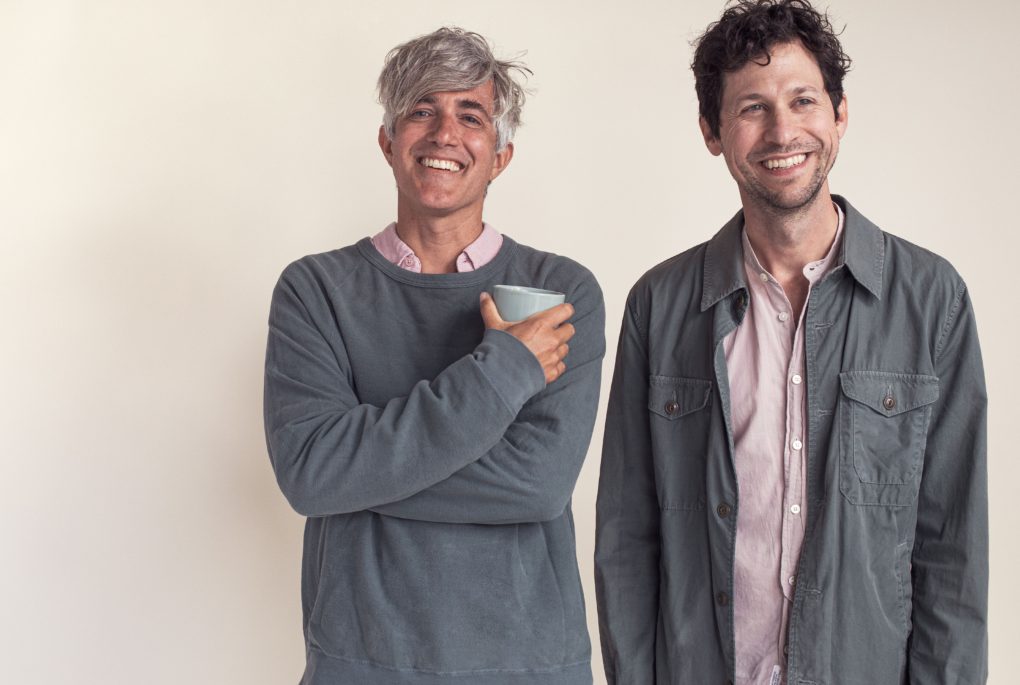
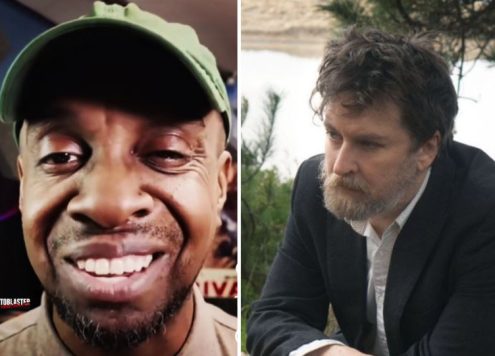
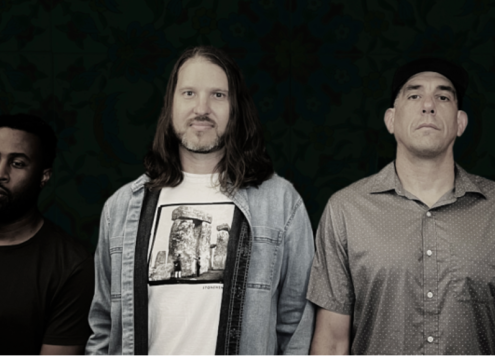
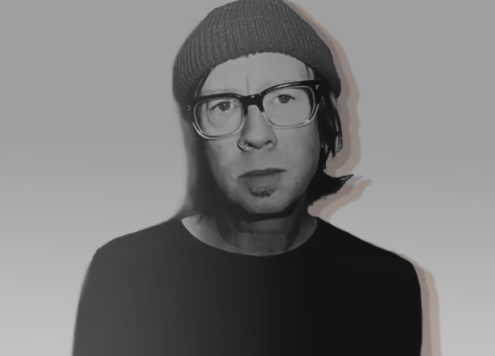

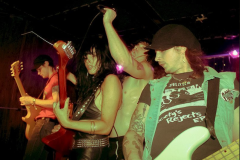

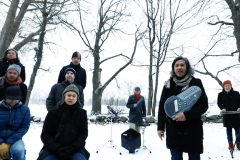
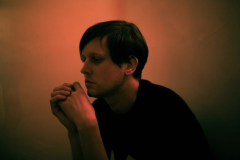

Social Media